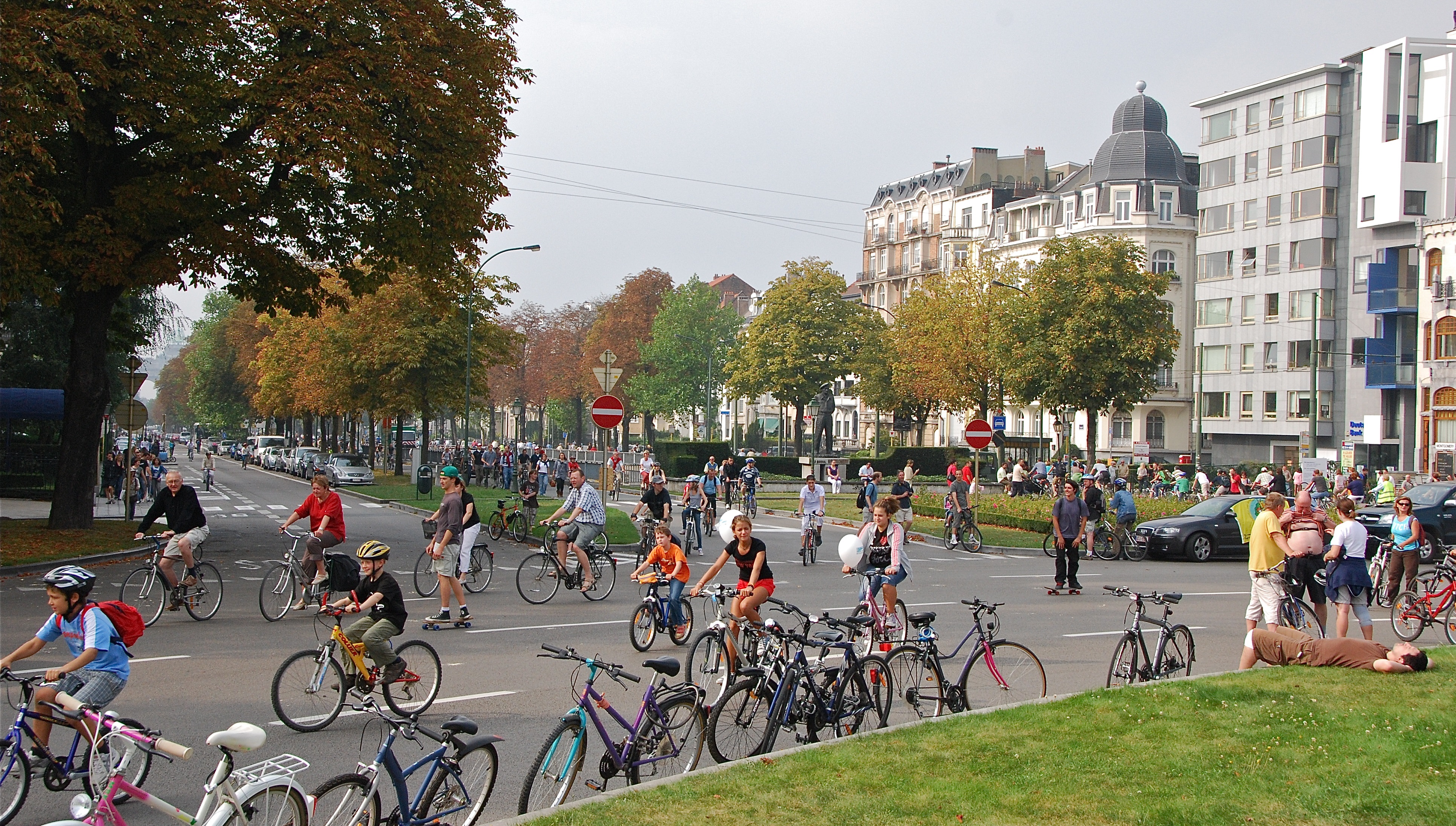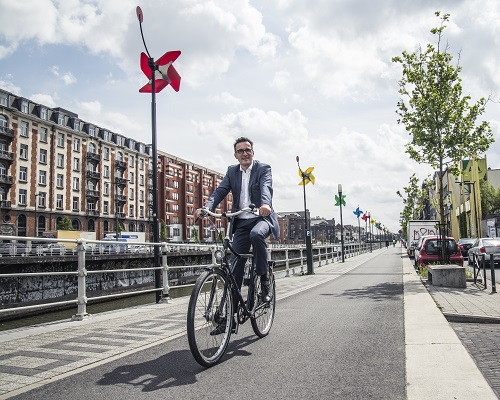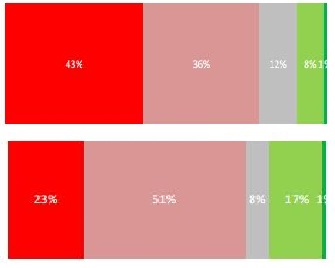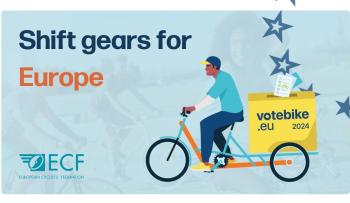
Regional drive for change in Brussels
 Brussels is not immediately famous for its cycling conditions, but improvements are on the way and will continue to be made if it is up ECF members Fietsersbond, GRACQ and Pro Velo and the Regional Brussels Government, one of ECF’s active Cities for Cyclists Network members. The collaboration between cyclists organisations and regional government is quite exemplary.
Brussels is not immediately famous for its cycling conditions, but improvements are on the way and will continue to be made if it is up ECF members Fietsersbond, GRACQ and Pro Velo and the Regional Brussels Government, one of ECF’s active Cities for Cyclists Network members. The collaboration between cyclists organisations and regional government is quite exemplary.
Measuring Cycling in the Brussels Cycling observatory
Brussels can indeed show some good recent results: cycling is on the rise in the European capital. In 2016, 30% more people took the bicycle compared to 2015. And what is equally important is that the Brussels Region, together with ECF member Pro Velo measures closely the progress that is made (since 1998). Pro Velo counts cyclists 4 times a year in January, May, September and November, which means in all seasons. 
The reasons behind the increase? Several and a mix of reasons. The growth in cycling is probably linked to the terrorist attacks in Brussels in March 2016, the lock down of certain metro stations and the many problems in the tunnel infrastructure. On the positive side, a new pedestrian zone in the city centre, a successful promotion campaign (Bike Experience) and quite nice weather in the months of May and September (50% and 52% more cyclists than the same months in 2015) are cited as the main incentives for cycling.
Investing in the User perspective
ECF members Fietsersbond and GRACQ joined forces to organise a national survey, to which almost 7.000 people responded (8% non cyclists included). The Brussels’ share was 2.300 citizens who clearly ask a fairer share of the road (81%) because the car traffic on their cycle route is too busy (90%). Brussels cyclists are not so happy with the safety (74% feels unsafe due to illegal parking, speeding, aggressive behaviour from car drivers) and the air quality (91% is unhappy with the air quality).

Fietsersbond and GRACQ encourage the Brussels region to continue implementing sustainable mobility policies (national road charge on heavy vehicles, promotion of car sharing, a regional parking policy and agency). But the survey shows that more could and should be done to increase the safety of cyclists: smart road charge for all vehicles, higher taxation of car use, decrease of space dedicated for cars.
Measuring Mobility
Concerning the space dedicated for cars, interesting numbers have been published recently by Belgian newspaper Le Soir. Journalist Michel De Muelenaere looked into the parking policy of the Brussels Region and compared it to other EU cities and capitals. Brussels appears to have more and cheaper parking spaces (on street) than other EU cities.
It is widely known that parking has a direct influence on the car use in the city and knowing that those cars are only used for 35min a day on average - occupying precious road space for the remaining 97,9% of the day – this is an important policy to work on. The positive side: there was already a decrease of 9% from 293.000 places to 265.000 places in Brussels between 2006 and 2015 and Brussels has an objective to decrease the on street car parking by 16% by 2020. The Region is also centralising the parking policies.
Overall, ECF congratulates the Brussels region for its good collaboration with local cycling stakeholders and all actors named above for the interesting data they provide on mobility. On our side, ECF is working hard to make this kind of data available and comparable on EU level.
Sources: http://www.gracq.org/actualites-du-gracq/thermometre-cycliste-les-resultats https://pascalsmet.prezly.com/2016-recordjaar-voor-fietsers-in-brussel https://www.fietsersbond.be/sites/default/files/pdf/20170221Persdossier_halftijdseevaluatie_2.pdf http://plus.lesoir.be/82233/article/2017-02-16/bruxelles-bouge-un-plan-pour-la-mobilite-bruxelloise
Regions:
Network/Project Involved:
Contact the author
Recent news!
Contact Us
Avenue des Arts, 7-8
Postal address: Rue de la Charité, 22
1210 Brussels, Belgium









